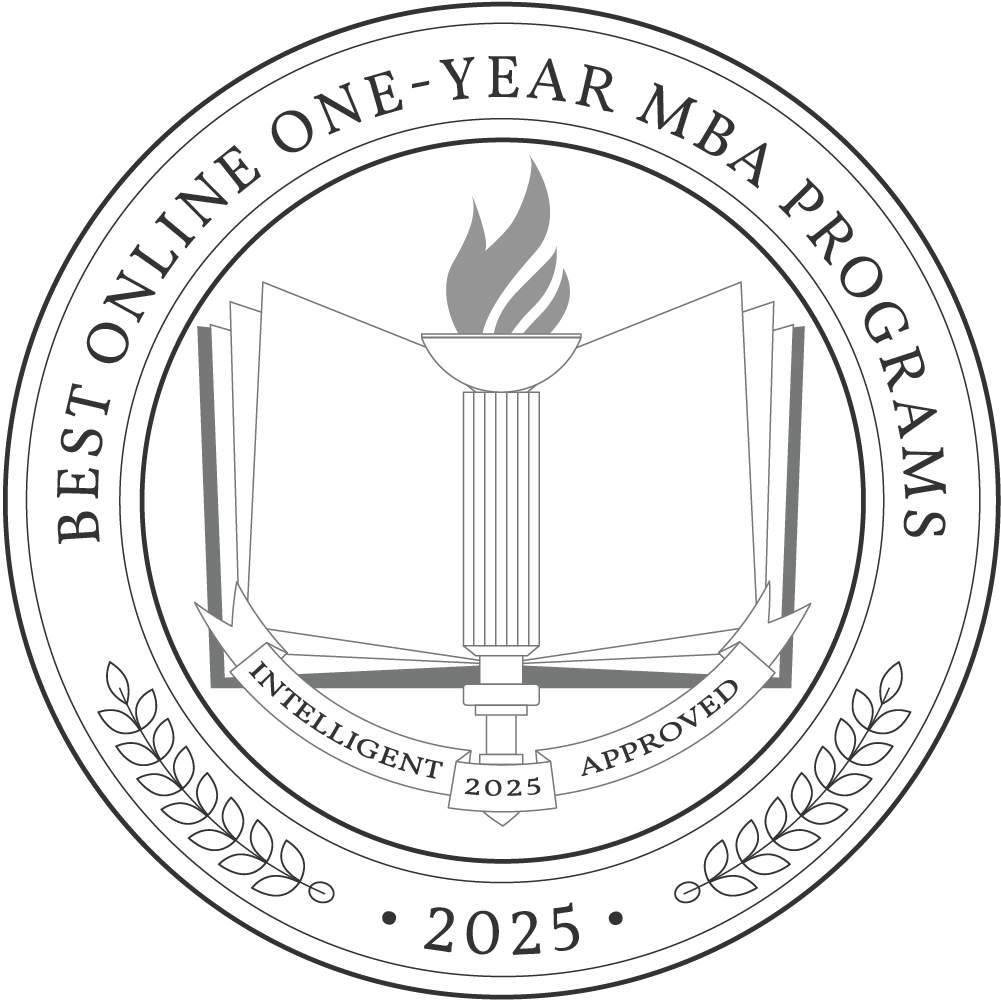Ambitious students seeking an accelerated path to success are often drawn to one-year MBA programs, as they deliver the same high-quality education as a traditional MBA program on a condensed, albeit intense, timeline. These programs are ideal if you’re eager to quickly dive into the business world and complete your degree requirements. Designed to equip students with essential management skills, one-year MBAs prepare graduates for lucrative roles such as:
- Financial manager, with a median annual salary of $156,100
- Marketing manager, with a median annual salary of $156,580
- Training and development manager, with a median annual salary of $125,040
With a focused and intensive curriculum, these programs typically take just 12 months to complete. The average annual tuition for a graduate degree program is $20,513.
Why Trust Us
The Intelligent.com Higher Education Team is dedicated to providing students with independent, equitable school and program rankings and well-researched resources. Our expert-driven articles cover topics related to online colleges and programs, paying for school, and career outlooks. We use data from the U.S. Department of Education’s College Scorecard, the National Center for Education Statistics, and other reputable educational and professional organizations. Our academic advisory team reviews content and verifies accuracy throughout the year for the most current information. Partnerships do not influence rankings or editorial decisions.
- Analyzed over 2,000 national, accredited, and nonprofit colleges and universities
- 800+ rankings pages are reviewed and updated yearly
- Content is informed by reputable sources, surveys, and interviews with academic advisors and other experts
- Over 100 data points are reviewed for accuracy and quality throughout the year, including sources
How we rank schools
Our list features the best online One-Year MBA programs at top colleges nationwide. Each school featured is a nonprofit, accredited institution — either public or private — with a high standard of academic quality for post-secondary institutions.
We evaluated each school’s program on tuition costs, admission, retention and graduation rates, faculty, reputation, and the student resources provided for online students. We collected data from trusted sources like the National Center for Education Statistics, individual school and program websites, school admissions counselors, and other data sources. Then, we calculated the Intelligent Score on a scale of 0 to 100 based on the following criterion:
Academic Quality:
- Admission rate versus enrollment rate
- Retention rate of students who return after year one
- Accreditation status (regional and programmatic)
- Nonprofit status, both private and public institutions
Graduation Rate
- Overall graduation rate
- Total number of currently enrolled students, including diversity metrics
- Student-to-faculty ratio
Cost and ROI
- In-state and out-of-state per-credit tuition rates and fees
- Required credits to graduate
- Earning potential after graduation
- Availability of federal student loans, scholarships, and other financial aid options
Student Resources
- Available student services for online-only and hybrid programs
- On-campus amenities like tutoring centers and the number of libraries
Read more about our ranking methodology.
Best 49 Online One-Year MBA Programs
FiltersInstitution Type
Status
- Intelligent Score
- Alphabetically By University Name
- Acceptance Rate
- Enrollment
- In-state Graduate Tuition
- Out-of-state Graduate Tuition
- In-state Undergraduate Tuition
- Out-of-state Undergraduate Tuition

UF Warrington School of Business
Intelligent Score: 99.16In-state: $4,477
Out-of-state: $25,694
In-state: $10,770
Out-of-state: $10,770
SAT: 1290-1460
ACT: 29-33
$1,208 - $1,500
Online
Association to Advance Collegiate Schools of Business
32

The University of Tennessee, Knoxville
Intelligent Score: 98.81In-state: $11,332
Out-of-state: $28,522
In-state: $11,468
Out-of-state: $11,468
SAT: 1140-1303
ACT: 25-31
$1,200
Online
Association to Advance Collegiate Schools of Business
33

American University
Intelligent Score: 98.39In-state: $50,542
Out-of-state: $50,542
In-state: $34,533
Out-of-state: $34,533
SAT: 1220-1390
ACT: 27-32
$1,866
Online
Association to Advance Collegiate Schools of Business
48

University of Cincinnati
Intelligent Score: 98.17In-state: $9,723
Out-of-state: $25,057
In-state: $13,224
Out-of-state: $13,224
SAT: 1120-1330
ACT: 23-29
$916
Online
Association to Advance Collegiate Schools of Business
35-48

Baylor University
Intelligent Score: 96.75In-state: $44,544
Out-of-state: $44,544
In-state: $33,408
Out-of-state: $33,408
SAT: N/A
ACT: N/A
$2,285
Online
Association to Advance Collegiate Schools of Business
48
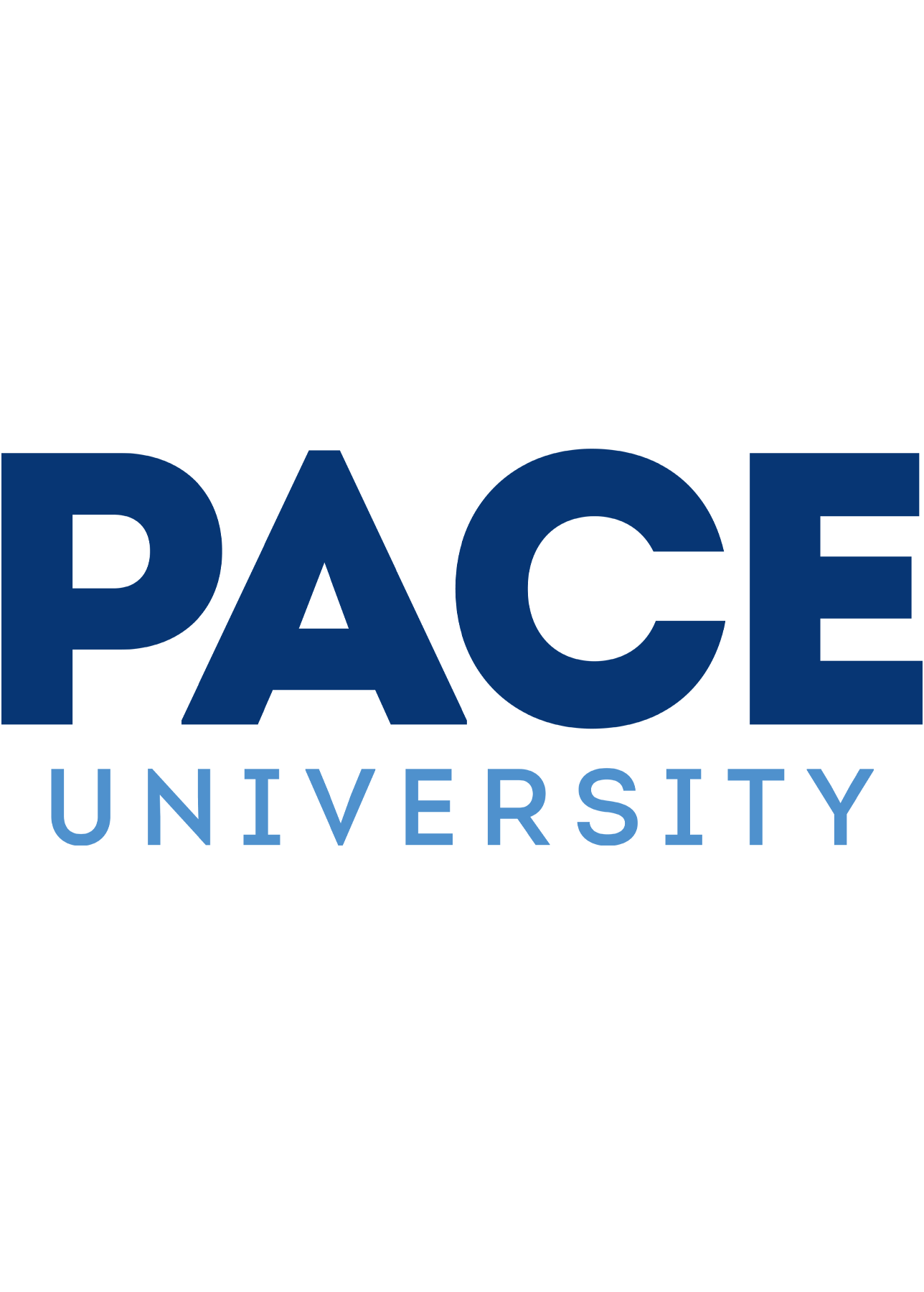
Pace University
Intelligent Score: 96.70In-state: $45,832
Out-of-state: $45,832
In-state: $32,256
Out-of-state: $32,256
SAT: 1060-1240
ACT: 22-28
$1,460
Online
Association to Advance Collegiate Schools of Business
39

University of South Florida
Intelligent Score: 94.45In-state: $4,559
Out-of-state: $15,473
In-state: $8,350
Out-of-state: $8,350
SAT: 1160-1320
ACT: 25-30
$497 - $750
Online
Association to Advance Collegiate Schools of Business
33-49

Texas Tech University
Intelligent Score: 94.36In-state: $8,683
Out-of-state: $20,953
In-state: $6,788
Out-of-state: $6,788
SAT: 1070-1240
ACT: 22-27
Resident: $383
Non-Resident: $640
Online
Association to Advance Collegiate Schools of Business
42
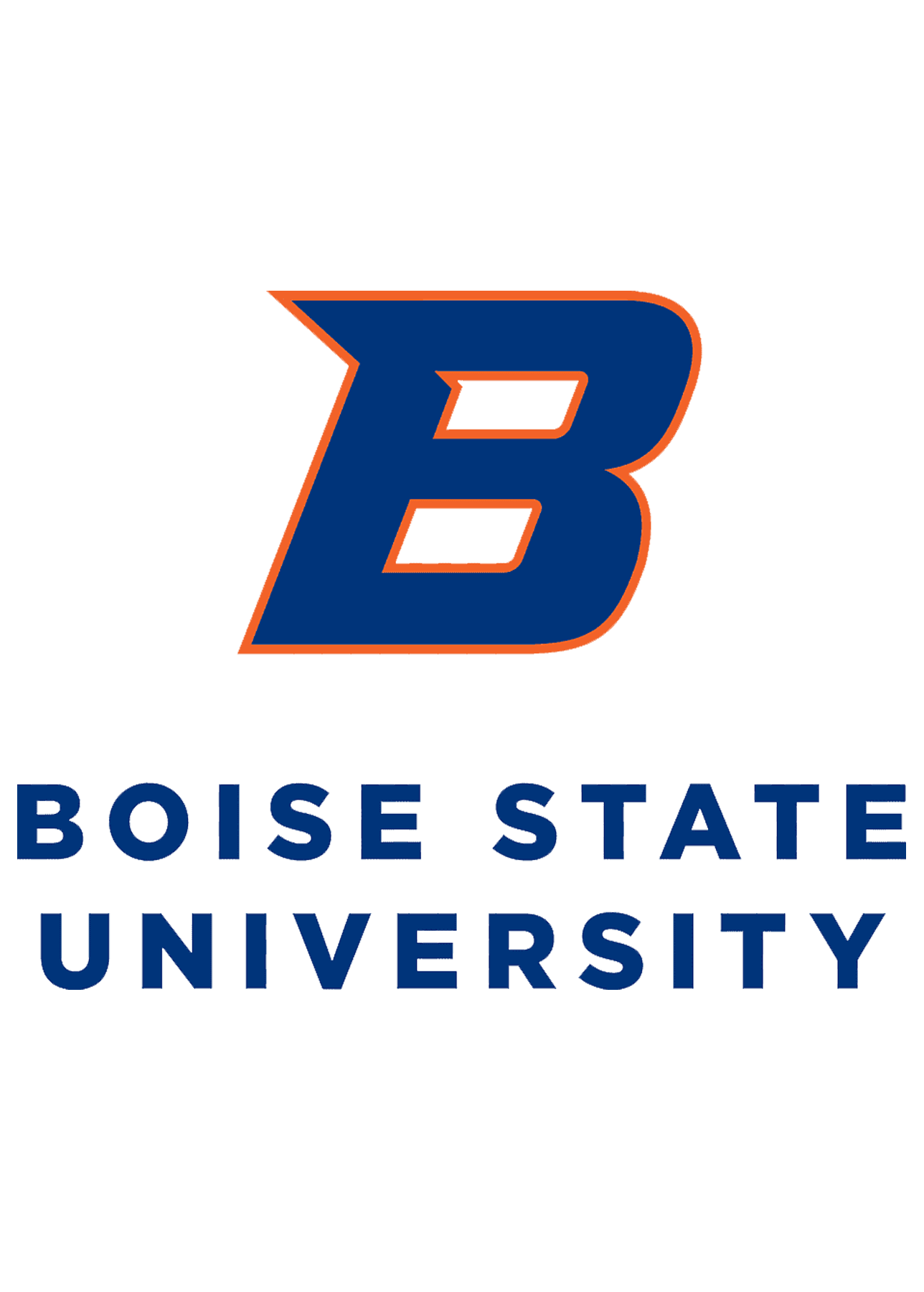
Boise State University
Intelligent Score: 92.93In-state: $5,532
Out-of-state: $22,452
In-state: $7,110
Out-of-state: $7,110
SAT: 1030-1210
ACT: 21-26
$750
Online
Association to Advance Collegiate Schools of Business
49

John Carroll University
Intelligent Score: 92.92In-state: $42,676
Out-of-state: $42,676
In-state: $15,957
Out-of-state: $15,957
SAT: 1060-1260
ACT: 22-28
$1,400
Online, On-Campus
Association to Advance Collegiate Schools of Business
33

Canisius University
Intelligent Score: 92.91In-state: $28,630
Out-of-state: $28,630
In-state: $15,120
Out-of-state: $15,120
SAT: 1040-1240
ACT: 21-27
$940
Online, On-Campus
Association to Advance Collegiate Schools of Business
46

West Virginia University
Intelligent Score: 92.86In-state: $8,976
Out-of-state: $25,320
In-state: $10,134
Out-of-state: $10,134
SAT: 1030-1230
ACT: 21-27
$965
Online
Association to Advance Collegiate Schools of Business
30

Claremont Graduate University
Intelligent Score: 91.41In-state: NA
Out-of-state: NA
In-state: $52,113
Out-of-state: $52,113
SAT: Not Applicable
ACT: Not Applicable
$2,020
Online
Association to Advance Collegiate Schools of Business
48
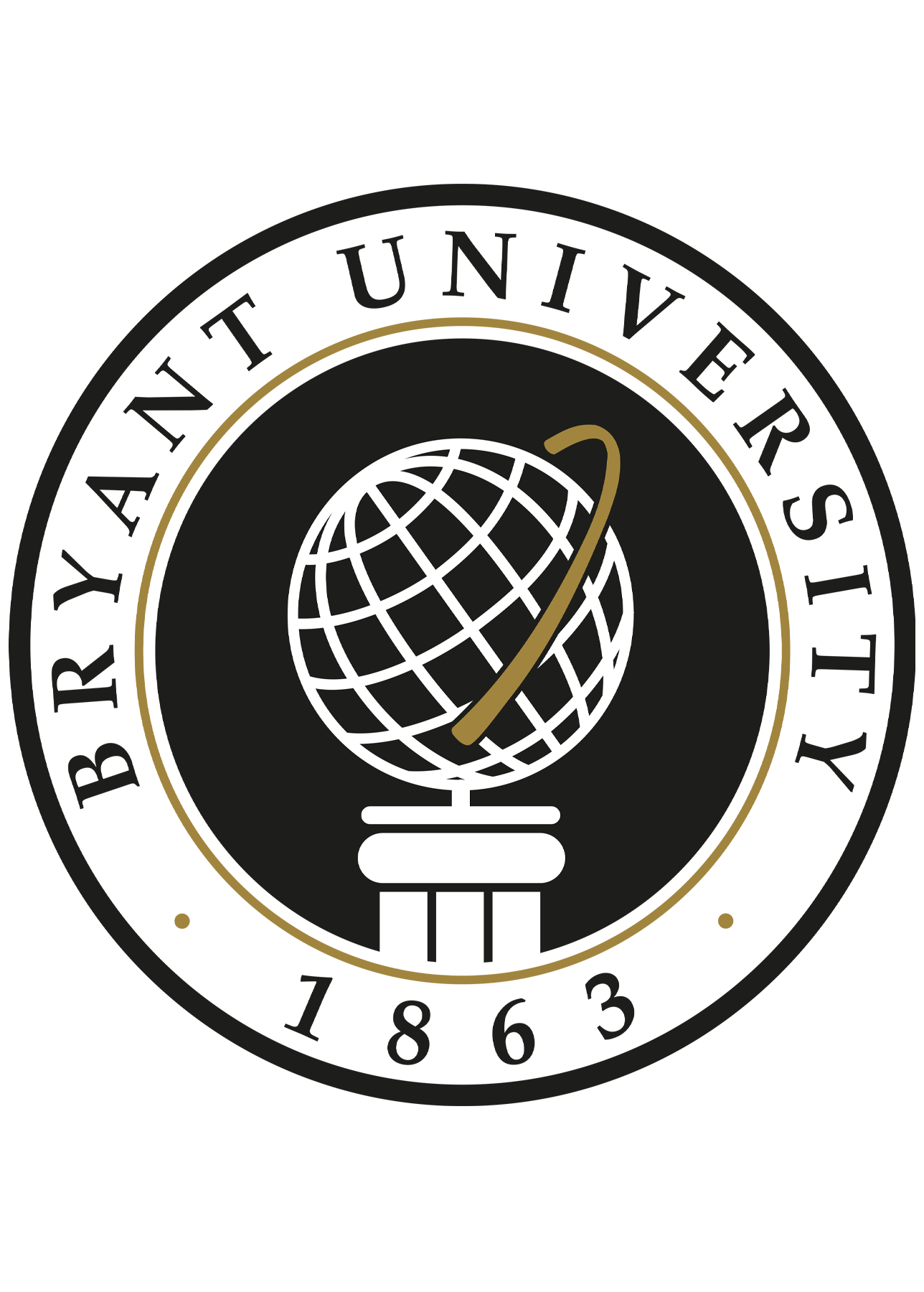
Bryant University
Intelligent Score: 90.77In-state: $45,966
Out-of-state: $45,966
In-state: $26,832
Out-of-state: $26,832
SAT: 1120-1280
ACT: 25-30
$1,209
Online
Association to Advance Collegiate Schools of Business
39

St. John Fisher University
Intelligent Score: 90.41In-state: $34,340
Out-of-state: $34,340
In-state: $17,550
Out-of-state: $17,550
SAT: 1060-1240
ACT: 22-27
$1,352
Online
Association to Advance Collegiate Schools of Business
30
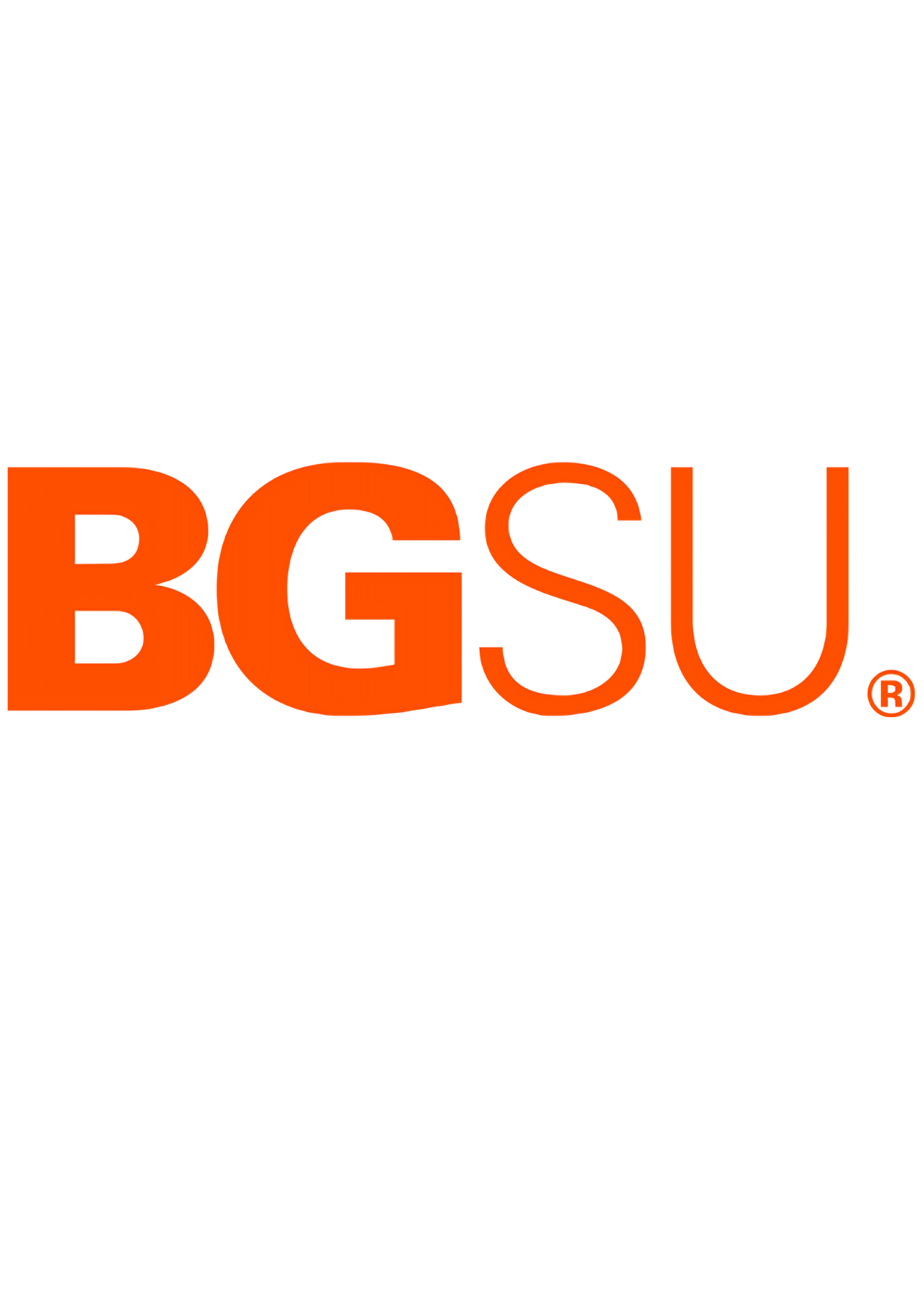
Bowling Green State University
Intelligent Score: 90.29In-state: $9,463
Out-of-state: $17,452
In-state: $8,017
Out-of-state: $8,017
SAT: 1020-1210
ACT: 20-26
$595
Online
Association to Advance Collegiate Schools of Business
30

Midwestern State University
Intelligent Score: 90.25In-state: $5,708
Out-of-state: $7,658
In-state: $4,145
Out-of-state: $4,145
SAT: 910-1100
ACT: 16-22
Resident: $383
Non-Resident: $803
Online, On-Campus
Association to Advance Collegiate Schools of Business
33
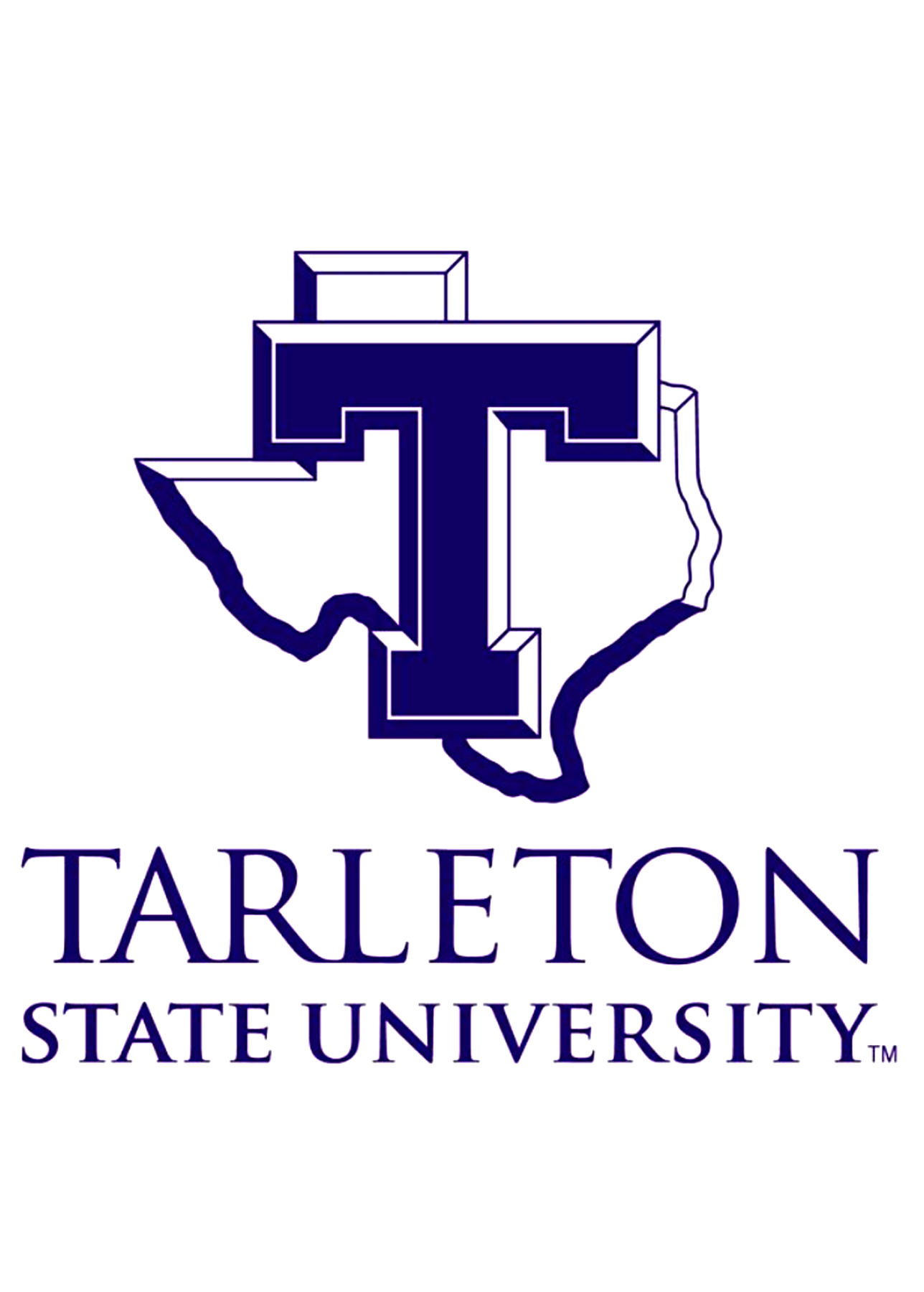
Tarleton State University
Intelligent Score: 89.98In-state: $4,951
Out-of-state: $14,123
In-state: $4,248
Out-of-state: $4,248
SAT: 940-1120
ACT: 18-23
In-State: $241
Out-of-State: $661
Online
Accreditation Council for Business School Programs
30
How to Choose an Online One-Year MBA Program
Choose your area of study
Many online one-year MBA programs will allow you to select a concentration and focus your studies on a particular niche in this field, such as finance, marketing, project management, or strategic management. If you already know what you would like to do after you graduate, look for programs that closely match these career goals.
To illustrate, those with strong analytical abilities and a penchant for economic thinking may excel in a finance specialization, preparing for investment banking or corporate finance roles. Marketing specializations suit creative individuals with a knack for strategic thinking and a passion for consumer behavior — ideal for marketing and brand management roles. For those with exceptional leadership and organizational skills, a concentration in strategic management can offer opportunities in consulting or executive management positions.
Research schools and programs
Once you’ve chosen a specialization, the best way to research one-year programs is to focus on schools renowned for their excellence in that field.
You should only apply to institutions that have been approved by a DOE-recognized regional accrediting organization, such as the New England Commission of Higher Education or Northwest Commission on Colleges and Universities. These organizations evaluate schools to ensure they provide students with a high-quality education. Those who attend a school that isn’t regionally accredited may be unable to access financial aid or transfer credits to another institution if needed.
Ideally, your online one-year MBA program will also be accredited by a respected industry group like the Association for the Advancement of Collegiate Schools of Business (AACSB) or the Accreditation Council for Business Schools and Programs (ACBSP). These programmatic accrediting organizations have particularly high standards for business education.
Also, look for programs with faculty experts, relevant industry partnerships, and a strong track record of successful alumni in your chosen specialty area.
To learn more about any schools that you’re interested in, you can visit the school’s website, contact an admissions counselor, follow the school on social media, or attend an in-person or virtual open house.
Prepare for tests and applications
Now that you have determined which schools and programs best align with your professional goals, you can begin preparing for tests and applications.
Application requirements vary by school and program. As admission is competitive, it’s vital to dedicate ample time to studying for standardized tests like the GMAT or GRE, if required. Focus on crafting an engaging personal statement that illustrates your career goals, achievements, and how your chosen specialization aligns with your aspirations. Seek letters of recommendation from relevant sources who can vouch for your academic and professional abilities. Also, you will need to submit undergraduate transcripts.
Remember, being proactive and organized and having an early start to the process will help ensure a robust application that enhances your chances of being admitted to the program of your choice. Always contact an admissions counselor to ensure you have the most accurate information regarding requirements and deadlines.
Select your program
Once you receive acceptance letters, you can start selecting your program.
Before making your final decision, review your needs and goals again. Do you plan to attend school full-time or part-time? Do you want your program to be as online as possible, or are you fine with a hybrid program that has a fair amount of in-person requirements? Some programs offer asynchronous courses, which can be completed at your own pace, while others only offer synchronous courses, which involve remotely attending lectures and completing assignments at the same time as other students — which of these two online learning formats do you prefer? Your school should accommodate your scheduling needs and learning preferences.
Determine how you’ll pay for your degree
Speak to financial aid counselors at the schools you’re interested in for the most accurate and specific information about program cost. Despite being on a shorter timeline, many accelerated MBA programs carry the exact tuition cost as their in-person, traditional counterparts. Yet, it’s still possible to finance your education in a manner that makes sense for your long-term goals.
Start by assessing your financial situation — including your personal savings, scholarships, and potential tuition reimbursement opportunities offered by your employer. Also, consider your academic achievements and unique background and research scholarships and grants specific to MBA programs. Submit the Free Application for Federal Student Aid (FAFSA) to determine your eligibility for federal loans, grants, and work-study opportunities.
What Can You Expect From an Online One-Year MBA Program?
True to its name, an online one-year MBA program is designed to give students the knowledge and skills they will need to succeed in their future careers in just 12 months. Students will learn essential management skills on a condensed timeline, participating in an intense learning experience that covers finance, marketing, strategy, operations, and leadership skills in the business realm. They will develop critical thinking abilities, enhance their decision-making capabilities, and gain insights into current business trends while learning at their own pace on a flexible schedule. While the format may vary among institutions, students can generally access course materials 24/7.
While many online MBA programs require students to attend a few residencies or workshops during the program, the self-paced and accelerated nature of most online one-year MBA programs makes these opportunities rare. Students seeking to learn independently and entirely online may be best suited for these degree programs.
Potential courses you’ll take in an online one-year MBA program
- Financial Management: Developing strong financial skills is vital for business professionals, and virtually all MBA programs consider coursework in finance a core requirement. In this course, students will learn how to analyze financial statements, assess investment opportunities, and make informed decisions to maximize shareholder value. They will gain a significant understanding of financial concepts such as capital budgeting, risk management, and financial planning.
- Operations Management: Another popular core requirement, courses centered around operations management delve into efficiently managing processes and resources to deliver products and services. Students will learn about supply chain management, quality control, process optimization, and the application of technology to streamline operations.
- Marketing Strategy: While some programs consider marketing courses an elective, many require at least one course in this field to meet graduation criteria. These courses focus on understanding consumer behavior, market segmentation, and creating effective marketing plans. Students will gain expertise in developing and implementing strategies to position products or services in competitive markets, enhance brand value, and drive customer engagement.
- Entrepreneurship and Innovation: Frequently an elective, this course teaches students the principles of entrepreneurship, including identifying business opportunities, crafting business plans, and seeking funding. They will explore innovative strategies to disrupt markets and drive growth while understanding the challenges of launching and scaling new ventures.
What Can You Do With an Online One-Year MBA Program?
Career outlook
Completing an online one-year MBA program opens up job opportunities for graduates across various sectors. Professionals with a solid grounding in business best practices — from finance to human resources — are highly desirable for employers in almost all industries.
The skills and knowledge gained through an MBA program make graduates well-equipped for leadership, management, and strategic roles. Here are some common career paths that are open to those with a one-year online MBA:
- Top executive — Coordinate the work of an organization by establishing goals, overseeing activities, and appointing department heads and managers.
- Median annual salary: $103,840
- Projected employment growth (through 2032): 3%
- New job openings projected: 311,600 annually
- Financial manager — Maintain the financial health of an organization by directing investment activities and developing plans for meeting long-term financial goals.
- Median annual salary: $156,100
- Projected employment growth (through 2032): 16%
- New job openings projected: 69,600 annually
- Advertising, promotions, or marketing manager — Plan advertising and promotional campaigns and supervise marketing staff.
- Median annual salary: $156,580
- Projected employment growth (through 2032): 6%
- New job openings projected: 34,000 annually
Online One-Year MBA Degree Frequently Asked Questions
How do I apply to an online one-year MBA program?
Start by conducting the appropriate research to find reputable, accredited institutions offering such programs. Visit their websites to find the application portal and follow the instructions to complete the online application.
Admission to these programs can be competitive, so paying close attention to application requirements is vital. These typically include a bachelor’s degree from an accredited institution, a competitive GPA, letters of recommendation, a statement of purpose, and a current resume showing relevant work experience. In addition, some programs may require GMAT or GRE scores, and many have minimum score criteria that students must meet to be eligible for admission.
Since the admissions process can be fierce, speaking with an admissions counselor before applying is crucial. Your admissions counselor can guide you through the process, clarify program details, and assess your eligibility for the program.
How much does an online one-year MBA degree cost?
While an online one-year MBA program may take less time to complete than a traditional program, you can expect tuition to be similar in terms of overall cost. The most affordable online MBA programs only cost around $310 per credit hour, and the average tuition for a graduate degree is $20,513 per year.
However, there are additional expenses beyond the tuition cost. Consider potential technology fees, course materials, and textbook requirements when budgeting for your accelerated MBA. Financial aid, scholarships, and employer sponsorship options may help mitigate the overall expense, making pursuing an online one-year MBA more accessible to diverse learners.
How long does it take to earn an online one-year MBA degree?
Online one-year MBA programs typically take 12 months to complete, making it an accelerated program designed to deliver a comprehensive business education in a condensed time frame.
Compared to traditional on-campus degree programs, online programs offer greater flexibility, allowing students to study at their own pace and access course materials 24/7. Accelerated programs, in particular, are more likely to provide asynchronous learning, meaning that students are encouraged to study and complete degree requirements independently.
Is an online one-year MBA worth it?
One-year online MBA programs have valuable benefits, making it a worthwhile investment for many individuals. This degree offers a comprehensive education in various business disciplines, including finance, marketing, strategy, and leadership principles. Graduates earn a well-rounded skill set that prepares them for different managerial and leadership roles.
The need for those who can handle managerial roles, in general, is growing faster than the average rate for all occupations. Also, the remuneration for these roles tends to be high, with a median wage of $116,880.
Online programs are also flexible, making them an excellent fit for students who need to balance their education with work or family commitments.
Other Online One-Year MBA Programs
Compare School Options
.
